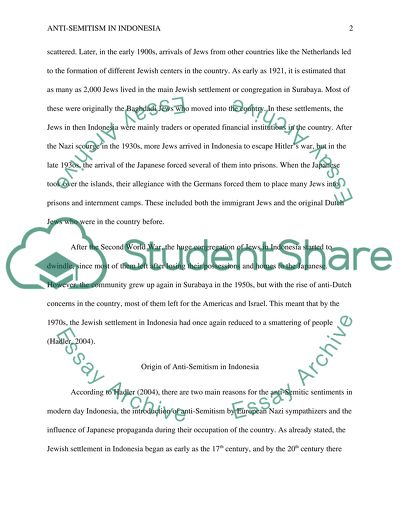Cite this document
(“Anti-Semitism in Indonesia Research Paper Example | Topics and Well Written Essays - 2500 words”, n.d.)
Retrieved from https://studentshare.org/religion-and-theology/1403060-anti-semitism-in-indonesia
Retrieved from https://studentshare.org/religion-and-theology/1403060-anti-semitism-in-indonesia
(Anti-Semitism in Indonesia Research Paper Example | Topics and Well Written Essays - 2500 Words)
https://studentshare.org/religion-and-theology/1403060-anti-semitism-in-indonesia.
https://studentshare.org/religion-and-theology/1403060-anti-semitism-in-indonesia.
“Anti-Semitism in Indonesia Research Paper Example | Topics and Well Written Essays - 2500 Words”, n.d. https://studentshare.org/religion-and-theology/1403060-anti-semitism-in-indonesia.


